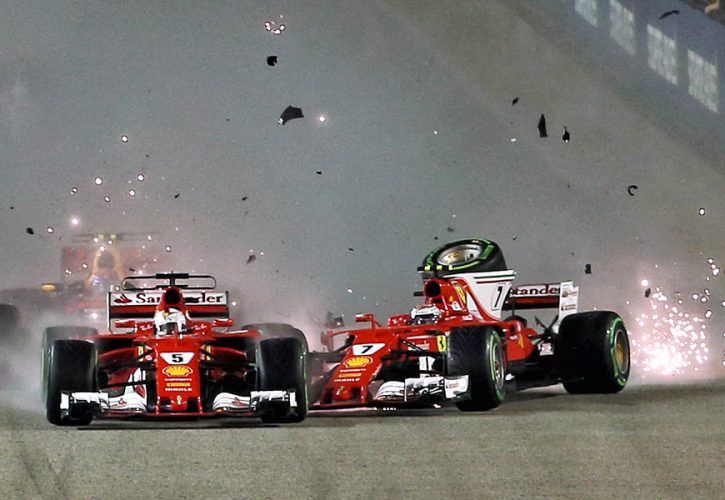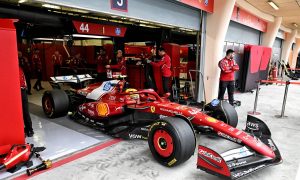
Sebastian Vettel's retirement at the start of the Singapore Grand Prix last weekend did not do significant damage to his Ferrari engine.
The team has determined that the unit was unaffected by the collision that took place in the run down to turn 1 at Marina Bay Street Circuit. Autosport magazine reports that as a result, Ferrari's technical team is happy for it to stay in rotation for future races.
The news will be a relief to Vettel. The engine was the third in his total season allocation of four engines. If he uses more than that, he'll start to amass starting grid penalties that could be a deciding blow to his title bid hopes.
Vettel's race on Sunday ended just seconds after the lights went out. He was involved in a three-way accident with his team mate Kimi Raikkonen and Red Bull's Max Verstappen.
The two Ferraris were on either side of Verstappen into the first corner. Raikkonen collided with the Dutch driver, and the impact twisted him around into the side of Vettel's car. Vettel suffered sidepod and cooler damage, but was able to get through the turn.
However the car then spun on its own fluids heading down the next straight. Vettel attempted to reverse down the track, but was finally ordered by the team to retire.
Vettel's main rival Lewis Hamilton went on to win the race. The Mercedes driver now as a 28 point margin over him in the world championship, with just six races remaining.
So far this season, Vettel has used three ICEs (internal combustion engines), MGU-Hs, MGU-Ks, energy stores and control electronics. In addition, he's used four turbochargers.
A fifth turbocharger would incur a 10-place grid penalty.
Ferrari is looking to introduce a new engine specification for the final races of the season, possibly as early as Malaysia. If so, it will have to adhere to the new regulation limiting oil burn to 0.9 litres per 100km.
The regulation came into effect for the Italian Grand Prix. Mercedes introduced its new engine spec the race before, in Belgium. That meant it was able to keep to the old oil burn limit of 1.2 litres of oil per 100km.
Gallery: The beautiful wives and girlfriends of F1 drivers
Keep up to date with all the F1 news via Facebook and Twitter






